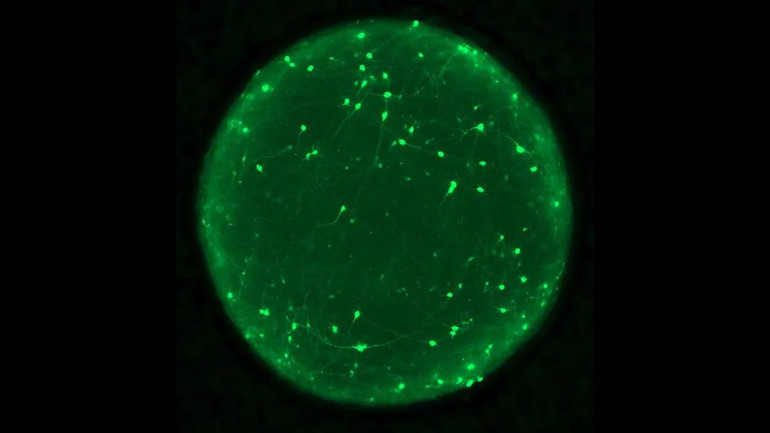Why do TBIs increase the risk of dementia? Answer of scientists
[ad_1]
Scientists create ‘minimums’ to find out why traumatic brain injuries increase the risk of dementia
SergeyNivens/Depositphotos
Scientists have found that concussions and other traumatic brain injuries (TBIs) increase the risk of dementia in people.
They discovered this thanks to “minimals” – models grown in the laboratory from human cells, the study says. published in the journal Cell Stem Cell, writes Live Science.
Scientists have grown cerebral organoids (or minibrains) that look like clusters of brain cells the size of a pinhead.
To do this, they took two types of tissue:
- healthy human donors;
- patients with amyotrophic lateral sclerosis (ALS) or frontotemporal dementia.
The scientists found that mutations in a gene called C9orf72 increase the risk of both diseases – all donors had a mutant copy of this gene.
The researchers blasted the resulting organoids with ultrasound pulses to mimic some of the effects of TBI, including brain cell death and changes in a protein called p-tau, which is linked to Alzheimer’s disease.
In addition, the team noticed changes in a protein called TDP-43, which has previously been linked to both TBI and many neurodegenerative diseases.
This protein is normally found in the nucleus of healthy cells, but in neurodegenerative conditions, TDP-43 accumulates in clumps. The study shows that after TBI, faulty TDP-43 proteins damage and kill brain cells.
The team discovered that the reason for their corruption could be that they had come out of the core.
These deleterious changes in TDP-43 were more common in organoids grown from cells from people with ALS or dementia than in cells from healthy donors.

Brain organoid with neurons highlighted in green.
Josh Berlind
“We tested every gene in the human genome to see if we could avoid this injury by suppressing any single gene.”said the study’s senior author, Justin Ichida, associate professor of stem cell biology and regenerative medicine at the University of Southern California.
The researchers found a protein gene on the surface of KCNJ2 cells. When this gene was deactivated, the brain was protected from the effects of TBI. The researchers tested it on their organoids and on lab mice, finding lasting effects.
“Targeting KCNJ2 can reduce neural cell death after TBI.
It may have potential as a post-injury treatment or as a preventative treatment for athletes and others at high risk of injury“, the scientist added.
Scientists have described a mechanism that blocks further consequences of brain injuries. They suggest that it can be used as a preventive measure or therapy after an injury. But for this, it is necessary to conduct a series of studies that will clarify in more detail the deep consequences of the brain after TBI.
We will remind, earlier scientists installedthat the damage that causes Alzheimer’s disease can occur immediately after a concussion.
Scientists too raised brain organoid from fetal brain tissue. He helped pioneer research into treatments for brain diseases and disorders, especially in children.
[ad_2]
Original Source Link











